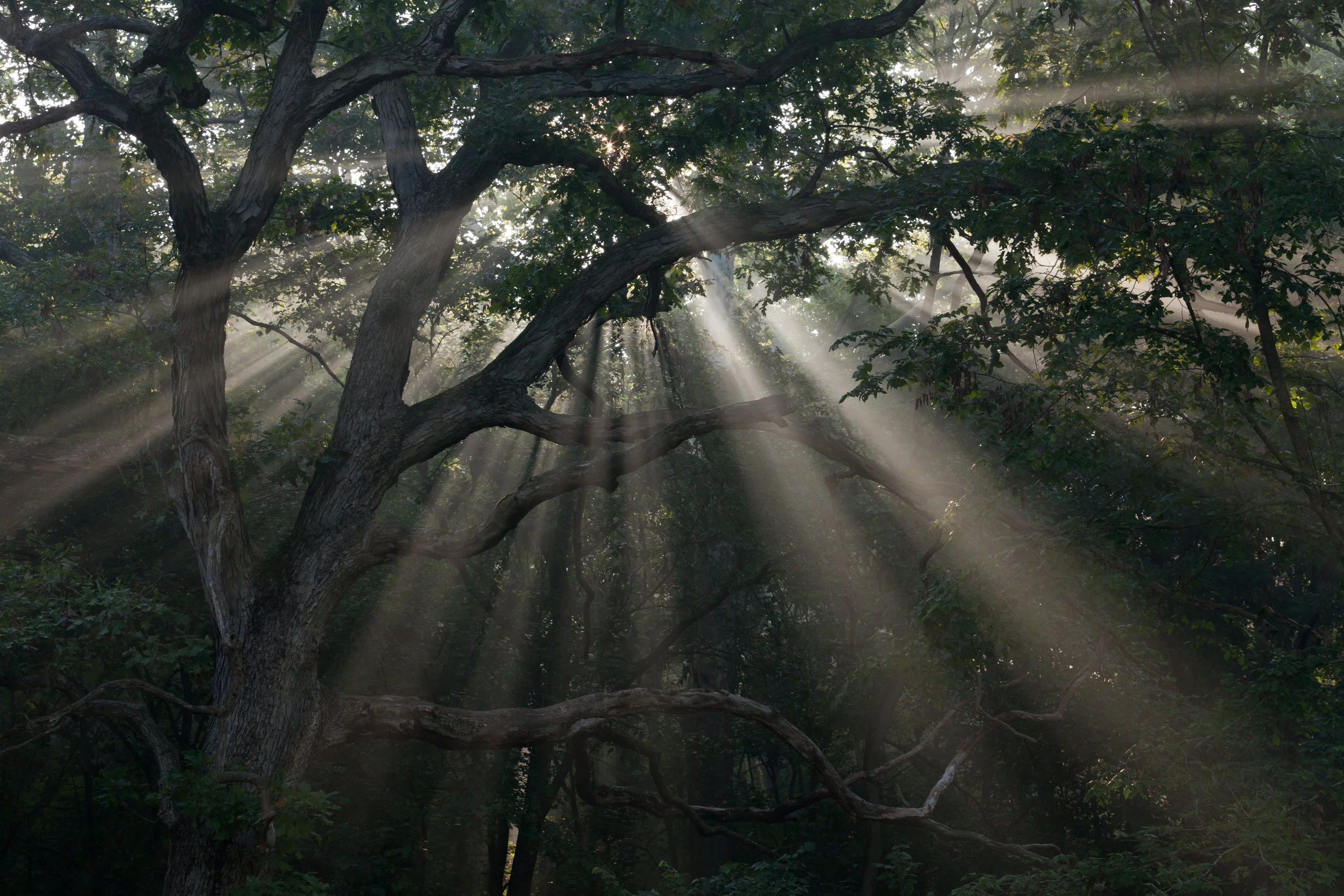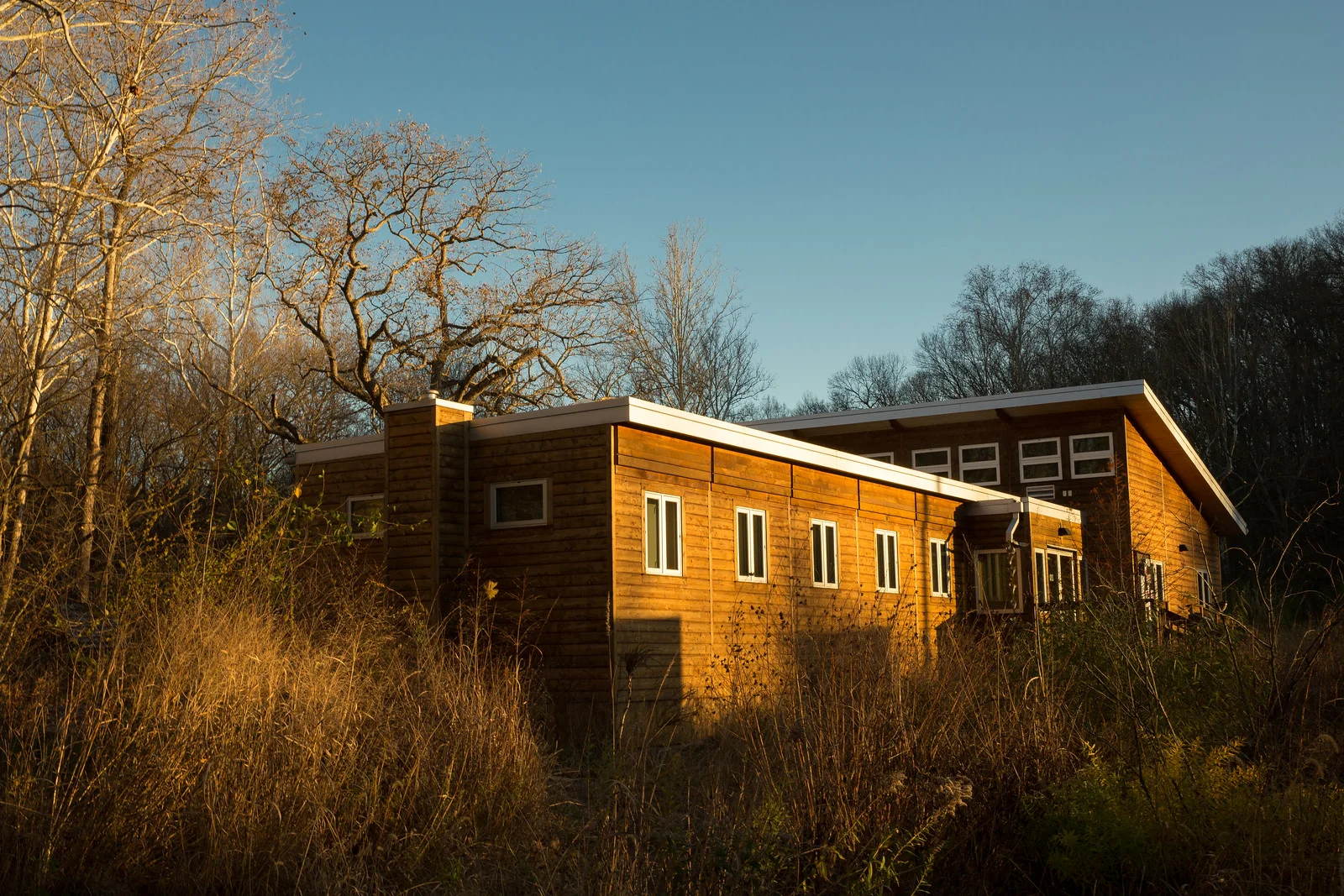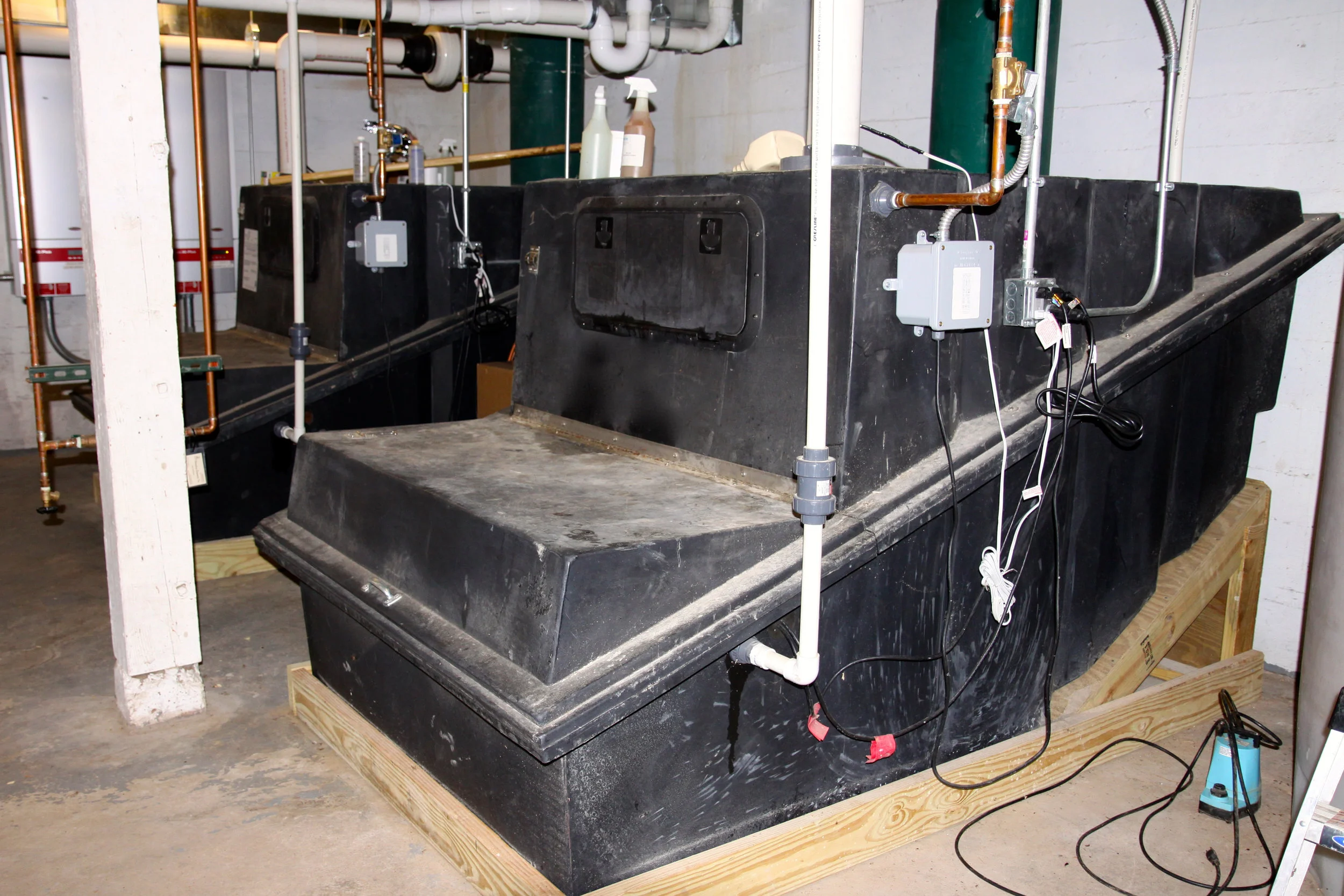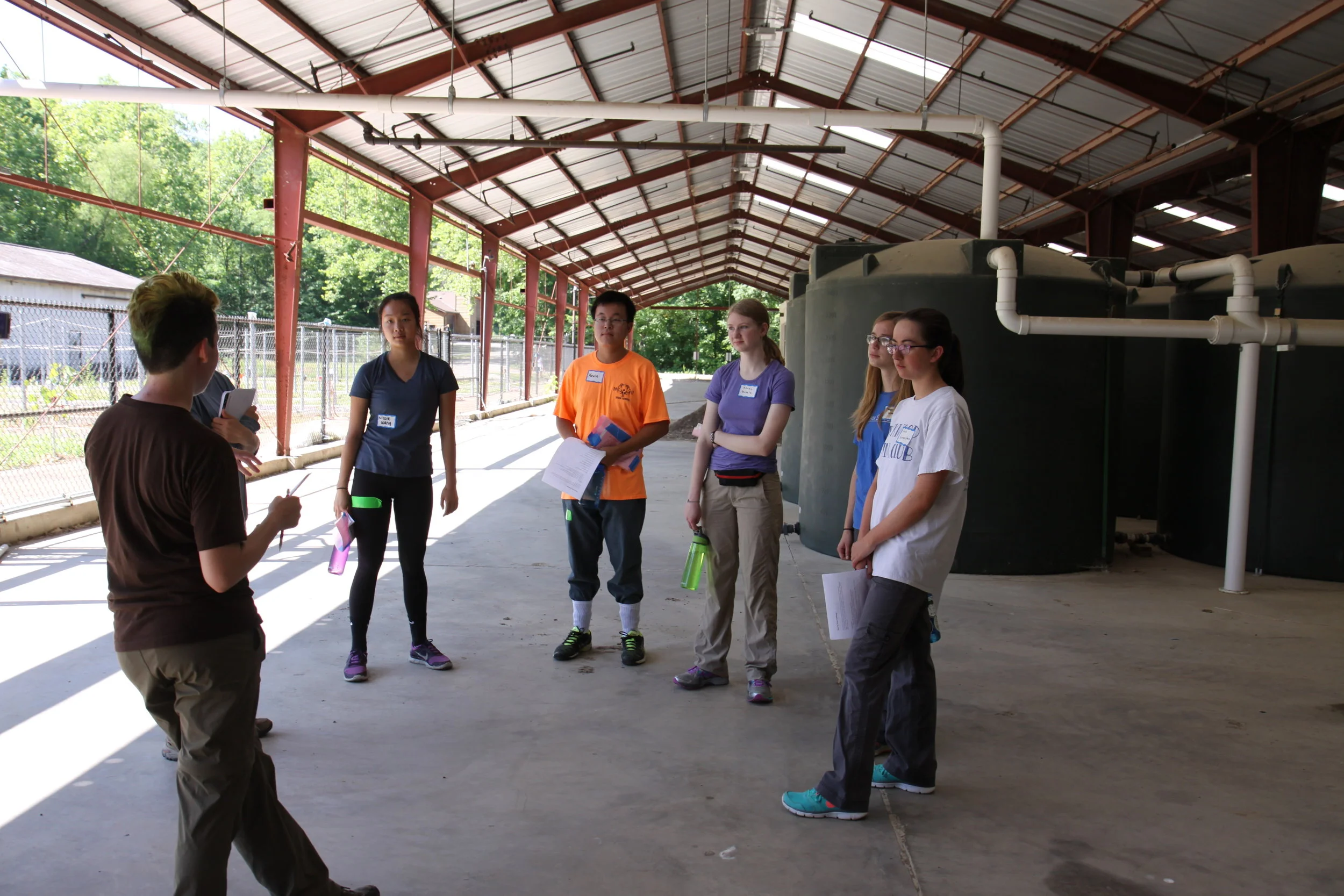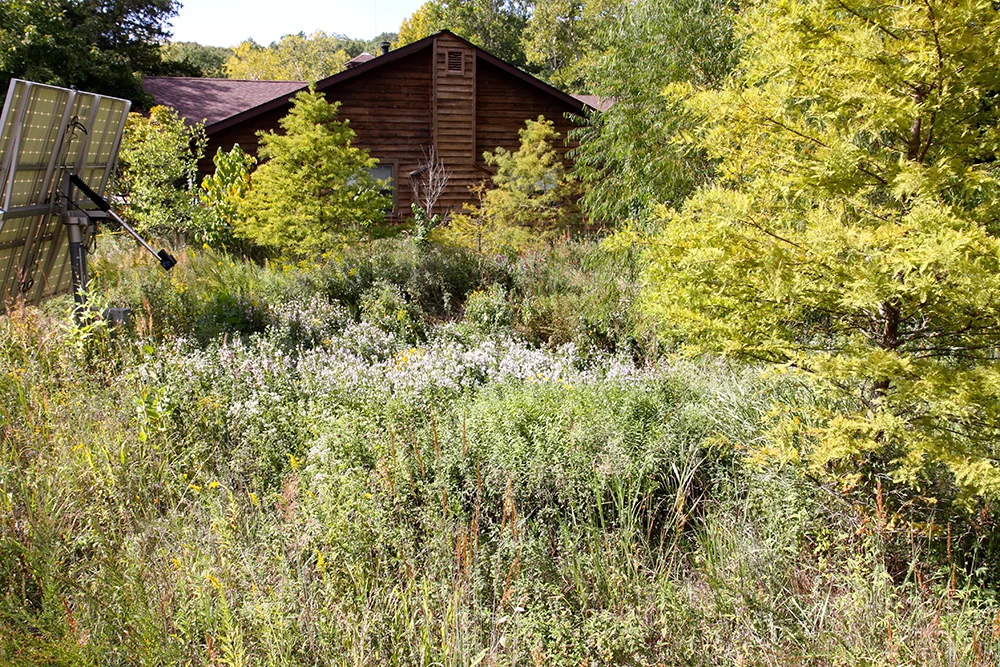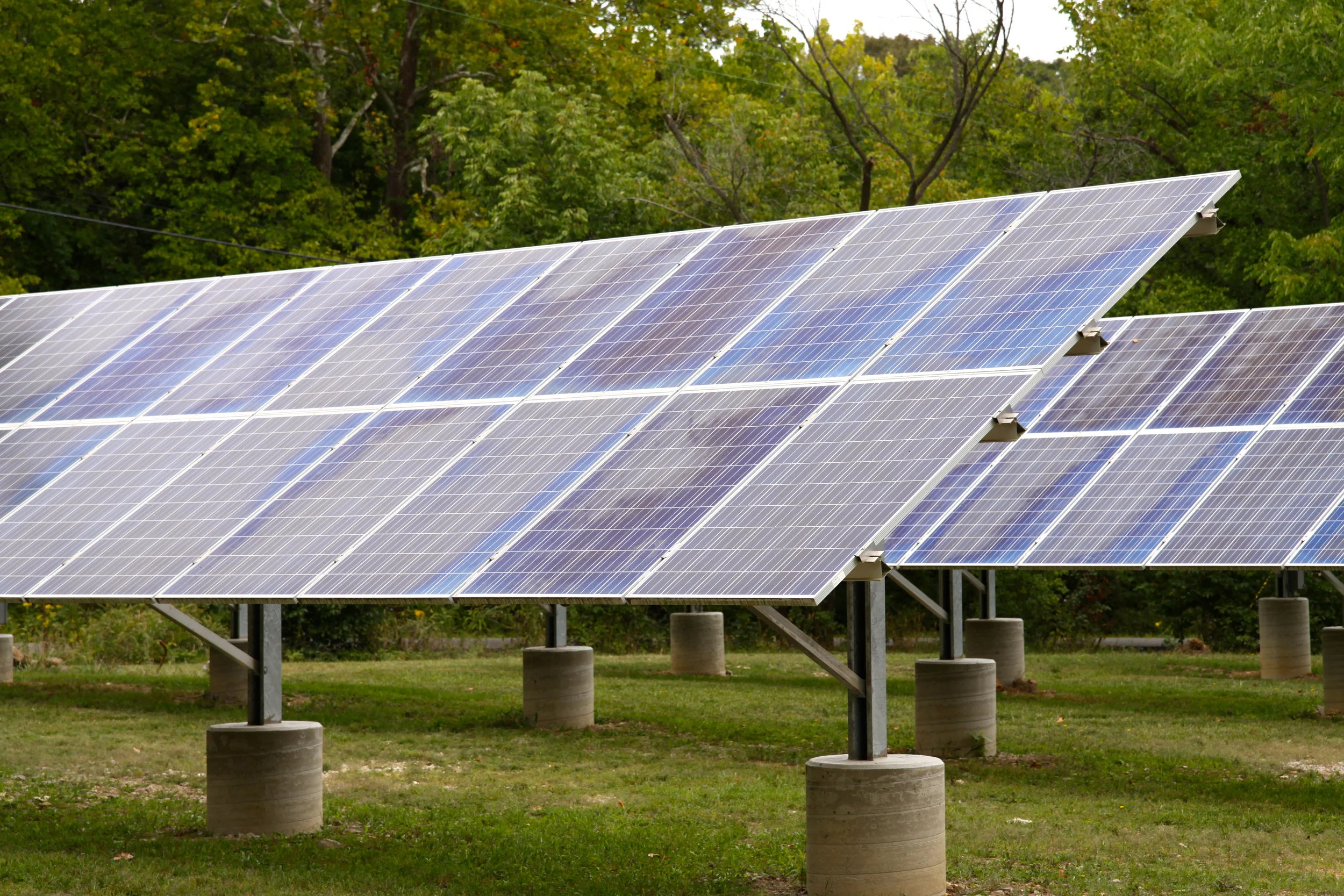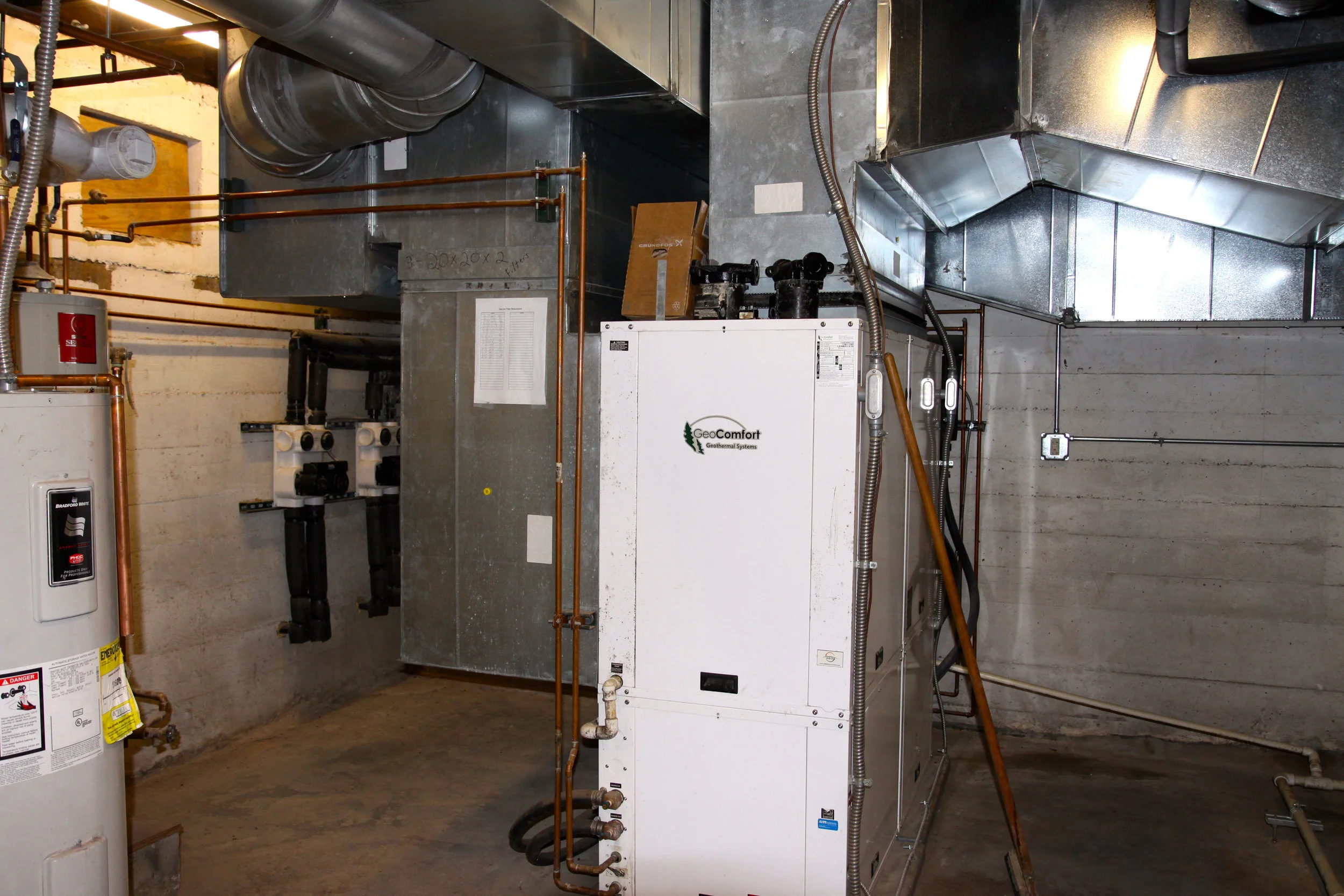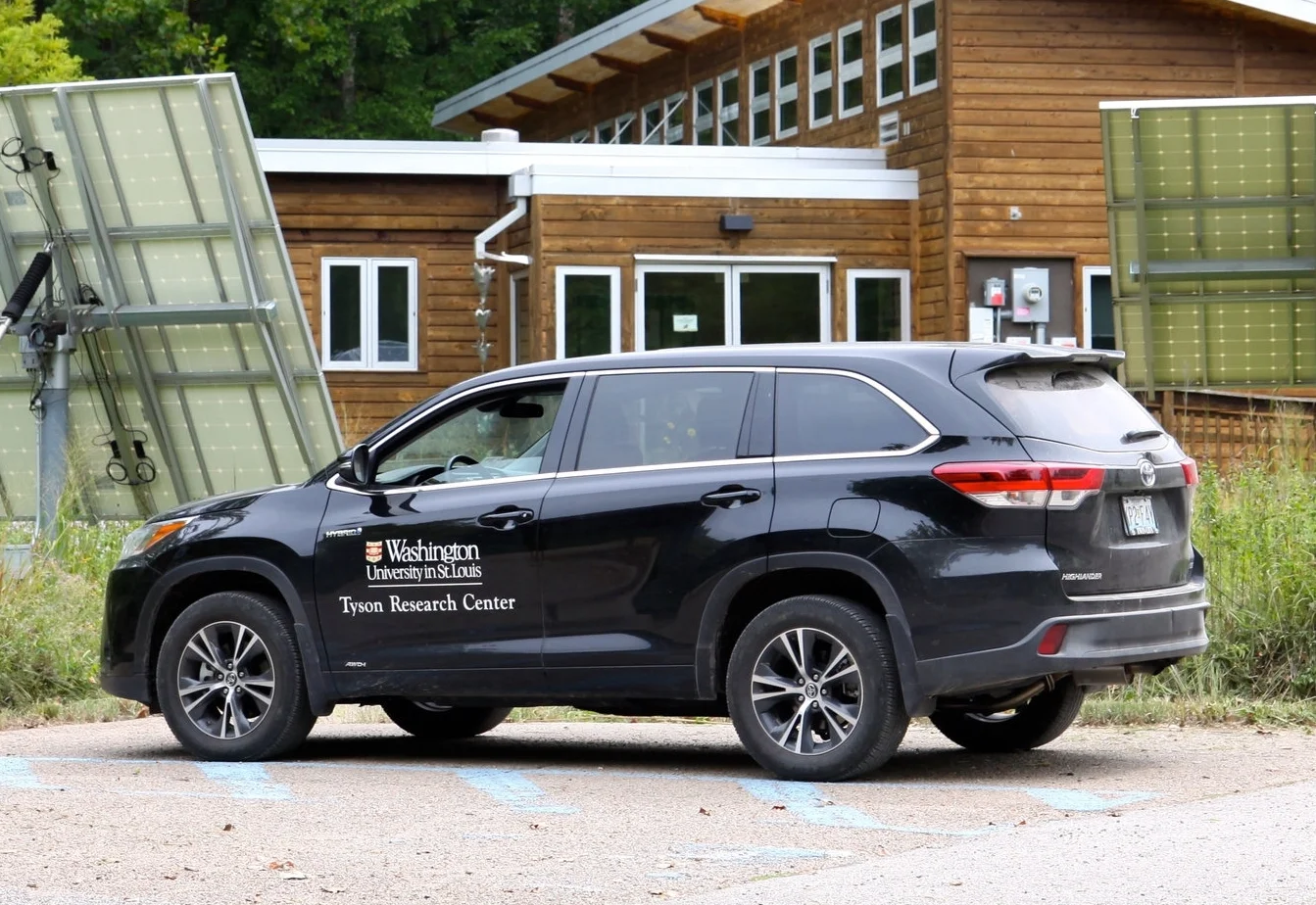At Tyson, we have implemented a number of large and small scale sustainable initiatives, many of which serve as case studies for sustainable operations elsewhere. We work closely with the Washington University Office of Sustainability to enhance the visibility of our efforts.
Discover our sustainable operations
Living Learning Center
Completed in 2009, the Living Learning Center was built to address Tyson's growing needs for research and teaching space. This unique building was designed to meet the most stringent green building standard of the time, the Living Building Challenge. Among other requirements, Living Buildings must create all their own electricity and harvest all of their own water. Click here to learn more and to take a tour.
Composting Toilets
Our headquarters and the Living Learning Center buildings have Clivus Multrum composting toilets. These toilets use a minute amount of water and aerobic bacterial decomposition to break down waste.
Rainwater Capture
We have two separate rainwater capture systems at Tyson. The Living Learning Center captures, stores, and treats rainwater before distributing it to the sinks in the building. Rainwater is also captured from the roof over the research laboratory and can be used for a variety of research purposes.
Rain Gardens
Tyson has two rain gardens for collection and slow absorption of excess water by native plants. The Living Learning Center uses a rain garden as part of the treatment system for gray water before it is released into the environment.
Solar Power
Our first solar panels were installed on the Living Learning Center’s roof in 2009. Following on this success, we installed a large array of solar panels to supply power to the Tyson headquarters and laboratory buildings. We are a certified Green Power Partner by the U.S. Environmental Protection Agency.
Geothermal HVAC
In 2011, we installed a closed-loop, ground-sourced geothermal heating and cooling system in our headquarters building. This system uses underground continuous piping loops filled with an anti-freeze-like liquid to transfer the ground temperature to the geothermal heat pump. This reduces the energy and cost required to heat and cool our most used building.
Porous Asphalt
Tyson's main parking area utilizes porous asphalt to minimize stormwater runoff. This pavement allows water to soak through into stone below then slowly releases it into the soil below.
Hybrid Vehicles
Tyson staff and students use a hybrid vehicle for commuting to and from the Washington University Danforth Campus.
Washu Green Office program
Tyson participates in the Green Office Program developed by WashU's Office of Sustainability. This program encourages offices to bring sustainability into their daily work ethic.

